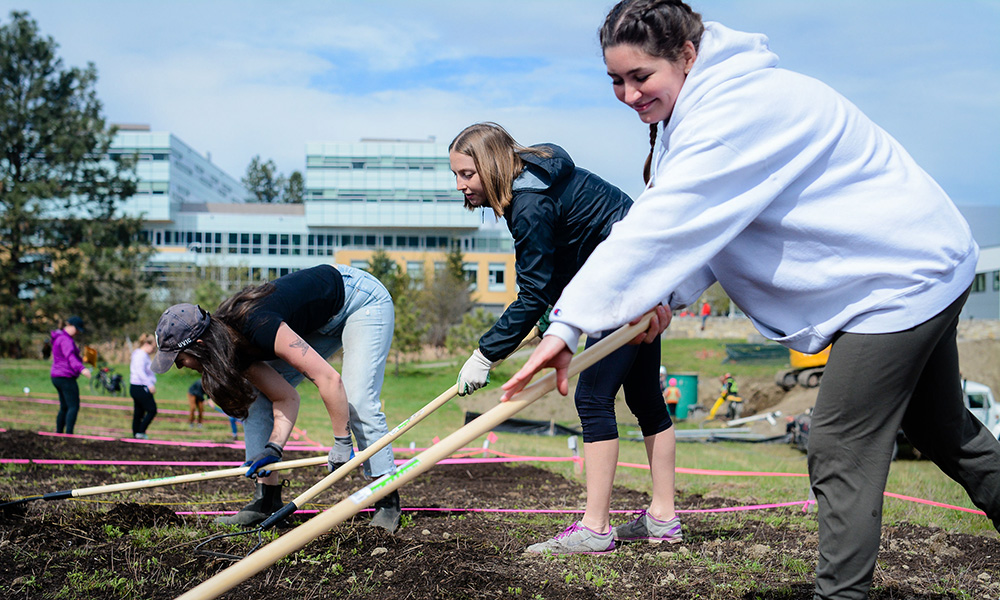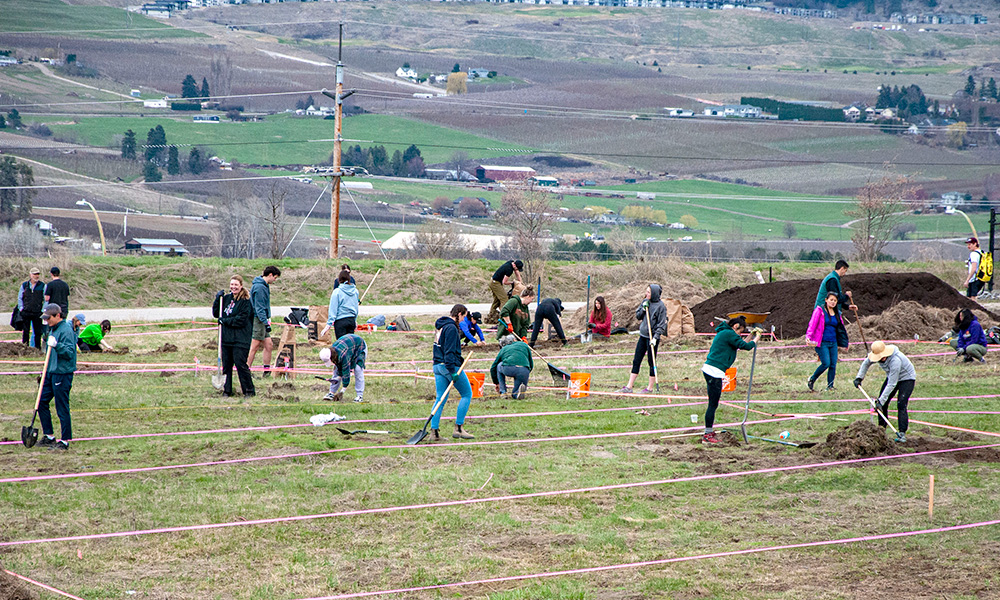
Some people may have looked out and seen a field of weeds, but Dr. Sumer Seiki saw an opportunity. Dr. Seiki, an Associate Professor in the Okanagan School of Education, had an idea that would physically bring truth, reconciliation and healing into her classroom. In spring 2023, Dr. Seiki and 140 teacher candidates took on a massive project to transform an unused field area on campus into a rich biodiverse space for native plants.
“In BC, invasive weeds have taken over a lot of the grasslands, and it’s become a big problem,” says Dr. Seiki, who has a background in plant biology. “According to Syilx knowledge, the land is a living entity intricately woven into their cultural practices, captikʷł stories, language and way of life. We are a part of a reciprocal relationship to the land; we give and it gives life to thrive. By learning about and practicing ecological restoration, we’re helping to make the land thrive again while also honouring Syilx knowledge.”
To assist with her project—called Preserving and Restoring Okanagan Syilx Plants and Endangered Regional Seeds—Dr. Seiki reached out to Xen Xeriscape Endemic Nursery & Ecological Solutions for advice on restoring the land.

“The Okanagan is incredibly unique; it has everything from an interior rainforest to the driest of the dry sagebrush slopes where almost nothing grows,” explains UBC Okanagan alumni Joshua Smith, manager at Xen. “We have native plant seeds at the nursery that need fire or need to be eaten in order to germinate.”
Xen works with local communities and developers on restoration projects to bring in native plants and re-establish the natural environment. To date, the organization has grown 120 different species of native plants and cultivates up to 70,000 plants annually.
“Native species are acclimatized to the arid area, meaning they can tolerate the high and low temperatures, and they don’t need as much watering,” says Smith. “Many household gardeners are changing to native plants because they’re tired of their hydrangeas dying or their cedars being eaten by deer.”
Please visit the UBC Okanagan website to read the full story.
Through Strategy 8: Student Research, UBC is expanding opportunities for undergraduates to gain first-hand experience in research and is strengthening research experiences for graduate students and postdoctoral fellows.